Key Takeaways
Airbnb connects hosts with guests looking for short-term stays in homes, apartments or private rooms
Hosts create a listing, set their availability and pricing, and manage bookings through the Airbnb platform
Airbnb handles payments, guest reviews and some forms of damage protection
So you want to build an Airbnb business, but you're asking yourself, what actually is Airbnb and how does it work?
For many starter hosts, the steepest learning curve is understanding how Airbnb actually works behind the scenes—what you control, what the platform handles and where the gaps are.
This guide breaks it all down into plain terms. Whether you're figuring out how to start an Airbnb, searching for reliable Airbnb host tips or comparing Airbnb management software, you’ll find the essentials here.
What Airbnb Is and How It Works
Airbnb runs like a marketplace for short-term stays. Guests search for places to stay, and hosts offer up homes, apartments, or single rooms. The platform sits in the middle—handling bookings, processing payments, and managing guest-host communication.
Hosts build a listing with photos, nightly pricing, availability, and house rules. Once the listing is live, it shows up in guest search results based on filters like location, price, and amenities. The goal is to stand out in that feed and get booked, especially if you're new and trying to compete with more seasoned listings.
Booking, payment and communication
All bookings go through Airbnb’s system. Guests either request to book or confirm instantly, depending on the settings you choose. Payment happens up front. Airbnb holds the funds and releases payouts 24 hours after check-in. For stays longer than 28 nights, the guest pays the first month up front, then monthly after that.
Service fees are deducted automatically. You don’t need to send invoices or follow up for payment—Airbnb handles both sides of the transaction. What lands in your account is the nightly rate (plus any fees like cleaning) minus the platform’s cut.
The messaging system keeps guest communication organized. Everything runs through one inbox, from pre-booking questions to check-out instructions. Once the stay ends, both the guest and the host leave reviews. Public reviews help build trust and influence your listing’s performance in search.
So, how does Airbnb work from a practical standpoint?
You manage the property: Tasks like guest prep, cleaning, maintenance, and access are all on your plate.
Airbnb manages the platform: Bookings, payments, reviews, and guest discovery all run through the system.
You both manage expectations: Guests want a smooth stay. Airbnb expects hosts to follow its policies and meet basic standards.
At its core, Airbnb connects travelers with temporary homes. You run the stay, Airbnb runs the tech. What you do between bookings—pricing, messaging, turnovers—is where the real work starts.
Enjoy the confidence & focus you need to scale your vacation rental business
Book more while doing less
With a reliable VRM solution you can trust, Uplisting can help you grow your business without wasting time on double bookings, unhappy guests, upset clients and worrying what could go wrong next.
What You Need to Get Started as a Host
Setting up to host on Airbnb isn’t hard, but skipping a step can slow things down fast. Before the first guest ever walks through the door, you’ll need to build out your host profile, create a listing that actually gets seen, and set clear pricing with a calendar that works for your schedule.
Create an account and complete your profile
Start by signing up and verifying who you are. A clear photo, a short bio, and confirmed contact details go a long way. Guests want to know who they’re booking from, and a half-finished profile makes it harder to build trust—even with a great space.
Airbnb walks you through uploading a government ID and confirming your email and phone number. The platform needs this information to keep bookings safe and reduce scams. Take a few extra minutes to get everything in place, and you’ll avoid problems later.
List your space
After setting up your profile, it’s time to show off the property. Photos matter more than most hosts expect—natural light, clean spaces, and wide shots make the difference between getting booked and getting skipped. Titles and descriptions should be clear, not clever. Tell guests exactly what they’re booking.
The platform will ask you to enter:
Location: Pinpoint accuracy helps guests find the place faster and prevents last-minute confusion.
Amenities: Wi-Fi, a stocked kitchen, laundry access, free parking—each feature helps your listing show up in more searches.
House rules: Be specific. No pets? Quiet hours? No parties? Say it here and save yourself from a bad review later.
Every detail you add helps Airbnb match your property with the right guests. Leaving fields blank or rushing through the setup can push your listing further down the search results.
Set your availability and pricing
Once the listing is ready, open up the calendar. Choose when guests can book, set minimum stay lengths, and build in buffer days after check-out if your turnover window is tight. Managing more than one property? A synced calendar saves you from accidental double bookings.
Rates are up to you. Airbnb offers a smart pricing tool, but many hosts prefer to set their own. Local demand, seasonality, and property type all matter more than whatever the algorithm recommends.
Nightly rate: Sets the base price per night before fees.
Cleaning fee: Covers turnover costs without eating into the nightly rate.
Minimum stay: Reduces gaps between bookings and keeps operations smoother.
Anyone wondering “how does Airbnb work?” needs to start here. The platform gives you the tools, but how you set them up makes all the difference.

How Bookings and Payments Work
Once a listing goes live, guests either request to book or confirm their stay instantly, depending on your settings. Instant Book skips the approval step entirely. If you're just starting out and want to build momentum, turning it on can help fill your calendar faster. Just make sure availability and pricing stay accurate—bookings can come in at any hour.
Airbnb charges the guest right away. Most guests pay in full when booking, though some can opt for a payment plan that splits the cost. You don’t need to send invoices or reminders. The platform handles payment processing automatically and holds the funds until check-in. If you set a security deposit, Airbnb keeps that on hold as well.
Payouts land 24 hours after check-in. That delay gives Airbnb time to catch any red flags or late arrival issues before sending the money. You can choose where the payout goes—direct deposit, PayPal, Payoneer, or Fast Pay for U.S. hosts who need faster access. First-time hosts might see a short wait while account details get verified.
Here’s how the process flows from booking to payout:
Guest confirms the reservation: Airbnb collects the full amount upfront, including cleaning fees and any applicable taxes.
Funds are held in escrow: Airbnb holds the payment until check-in.
Payment is released: You get paid 24 hours after check-in, minus Airbnb’s service fee.
If anything goes wrong: You can request extra charges or report damage through the Resolution Center.
For anyone asking, “How does Airbnb work?”—this is the part that keeps the engine running. A predictable payout schedule helps you stay on top of expenses, especially when managing a few short-term rentals without a full team. The platform handles the money so you can focus on clean turnovers, fast responses, and five-star reviews.
All-in-one Vacation Rental Software and Channel Management System
Get started in seconds by connecting Airbnb
Manage short-term rentals & bookings, message guests, take payment, and so much more. All in one easy-to-use platform (that never double-books).
What Airbnb Provides (and What It Doesn’t)
Airbnb gives just enough structure to support a short-term rental—but not enough to run one smoothly without extra systems. The platform connects you to guests, handles bookings, and processes payments. Beyond that, you're on your own. If you're asking “how does Airbnb work” and hoping most of the work is done for you, here's where expectations usually reset.
The tools Airbnb provides
Airbnb includes a messaging inbox, booking calendar, review system, and basic controls for pricing, availability, and house rules. The calendar blocks off dates automatically when a booking comes through. It works fine for a single listing, but juggling multiple calendars manually gets messy fast.
The messaging tool handles all guest communication before, during, and after a stay. Guests send booking requests, ask questions, and receive check-in details here. You can use saved replies and schedule messages, but no real automation exists beyond what you manually set up.
Every stay ends with a review. Guests rate you on cleanliness, accuracy, check-in, communication, location, and value. That average rating directly affects search position and booking rates. You also rate guests, which helps other hosts identify who’s respectful and who’s not.
AirCover for Hosts includes damage protection and liability coverage at no extra charge. It doesn't replace short-term rental insurance, and claim approvals can take time. Consider it a backstop—not a full safety net.
What Airbnb doesn’t provide
You’re responsible for everything guests experience once they book. No one cleans, restocks, or troubleshoots issues for you. If a guest can’t find the lockbox at 11 p.m., you’re the one taking the call.
Here’s what you manage:
Guest-ready prep: Clean the space, reset furniture, restock supplies, and fix anything broken before each new booking.
Access setup: Set up and test your lock system, whether you're using a smart lock, keypad, or key handoff.
On-the-ground support: When the AC stops working or a leak starts in the middle of a stay, guests message you—not Airbnb.
Airbnb handles the reservation. You handle the stay. Running one property manually might work short-term. Once bookings pick up or you add more listings, trying to manage everything without help starts costing you time—and likely, reviews.
Pros and Cons of Hosting on Airbnb
Running a short-term rental through Airbnb can bring in steady income—but it’s far from hands-off. You’re running a hospitality business, whether it’s a single guest suite or multiple properties across town. Before jumping in, it helps to know where the platform supports you and where you’re on your own.
Pros
Flexible income on your terms: Set your calendar, choose your nightly rate, and decide who stays at your property. Whether you're filling in between long-term tenants or operating year-round, you stay in control.
Built-in guest traffic: Millions of travelers use Airbnb to search for short-term stays each day. The platform sends guests your way without requiring paid ads or a personal website.
No upfront listing fees: Airbnb doesn’t charge to create a listing. Upload some photos, add pricing and availability, and you’re ready to accept reservations. The platform takes its cut from each booking after a guest pays.
Cons
Daily management adds up: Cleaning, restocking, messaging, and coordinating access all fall on your plate. Without tools or help, those tasks quickly pile up—especially with back-to-back bookings.
Guests expect hotel-level service: A late check-in message or missing amenity can easily drop your review score. Once ratings slip, bookings follow. The margin for error is small.
Short-term rental laws vary by city: Some places require permits or restrict how many nights you can host. Others ban short-term rentals entirely. You’re responsible for staying compliant, and enforcement can change without much notice.
You’re in great company
Sign up
Some of the largest short-term rental operators (with 250+ properties) rely on Uplisting's software to scale their businesses.
The Bottom Line: Airbnb and Uplisting Work Together
So, how does Airbnb work for someone managing one to five properties? The platform handles bookings and payments, but you handle everything else. A clear process and reliable setup make all the difference.
Getting started with Airbnb means understanding how the platform supports your business—and where you’ll need to build your own systems. Airbnb handles bookings, payments, and guest discovery, but you’re in charge of delivering a five-star experience. From setting up your listing to managing turnovers, every detail matters when it comes to guest satisfaction and long-term success.
As you grow beyond a single listing, manual work adds up quickly. Managing multiple calendars, guest messages, and turnovers without automation leaves room for mistakes. That’s where the right tools come in. If you're serious about scaling your short-term rental business, it’s time to take control of the backend and simplify your day-to-day operations.
Sign up for Uplisting to streamline your vacation rental management.
FAQs
How much does Airbnb charge hosts?
Airbnb usually takes 3% from the booking subtotal, which includes the nightly rate and any added fees like cleaning. Optional services may come with extra charges, but most hosts stick to the standard setup. Airbnb deducts the fee automatically before sending your payout, so there’s nothing extra to track.
Do I have to accept every booking request?
No. You can choose to review each request before accepting, which gives you time to check the guest’s profile and past reviews. Instant Book is another option, and it skips the approval step—but you can still set filters like verified ID, positive reviews, and payment confirmation. Either way, you stay in control.
What happens if a guest damages my property?
If a guest causes damage, you can file a claim through AirCover for Hosts. Airbnb’s program covers a wide range of issues, but you’ll need to include clear documentation—photos, receipts, and a description of what happened. Submit claims within 14 days of check-out or before the next guest arrives, whichever comes first.
Can I manage more than one listing on Airbnb?
Yes. One account can support multiple listings, and many hosts run several properties from the same dashboard. Once you’re managing more than two, daily tasks start to pile up—calendar updates, guest replies, cleanings, and everything in between. Property management software helps automate the routine work and keeps operations from getting out of hand.
How does Airbnb work when hosting at scale?
The platform handles bookings and payments the same way no matter how many listings you run. What changes is the workload. More properties bring more moving pieces—overlapping check-ins, back-to-back turnovers, and nonstop guest messages. Systems that worked fine for one unit usually fall short when you’re managing four or five. Streamlined tools and consistent processes help you keep up without burning out.




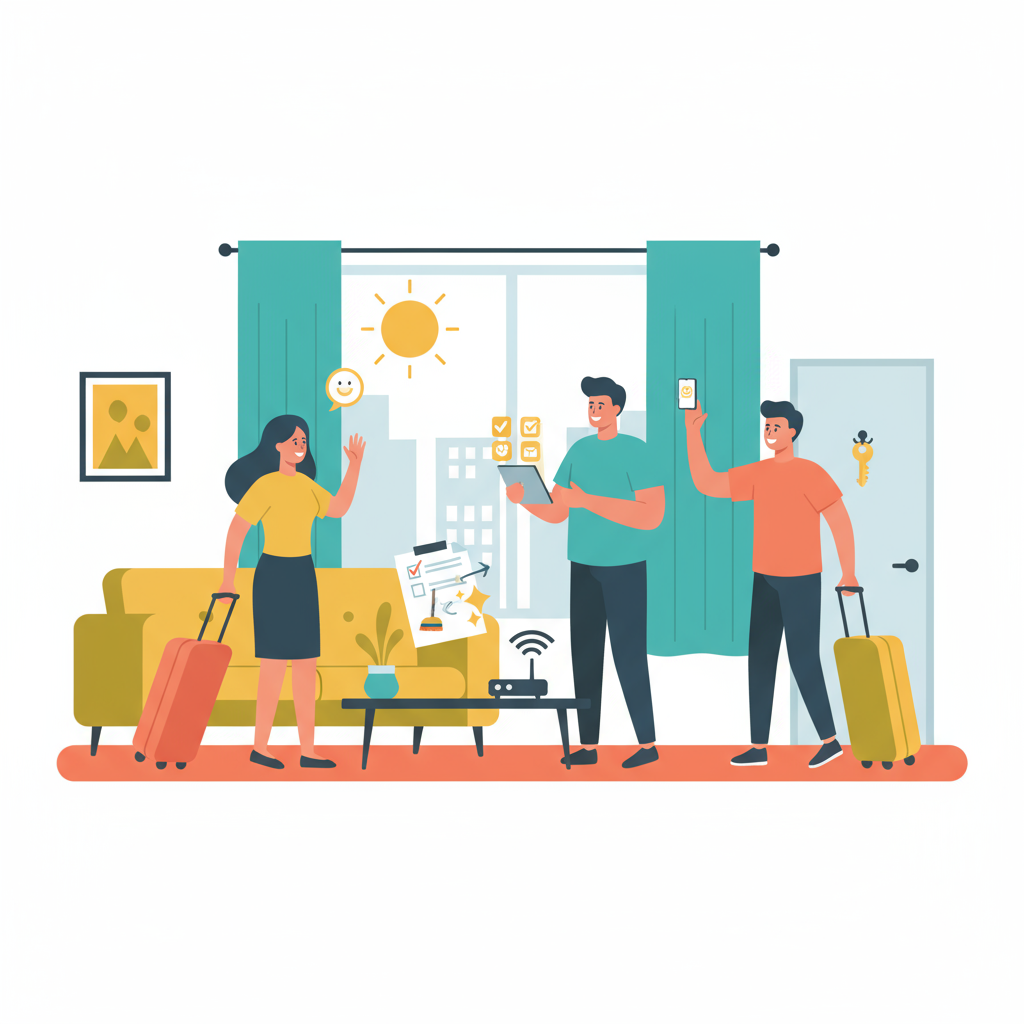
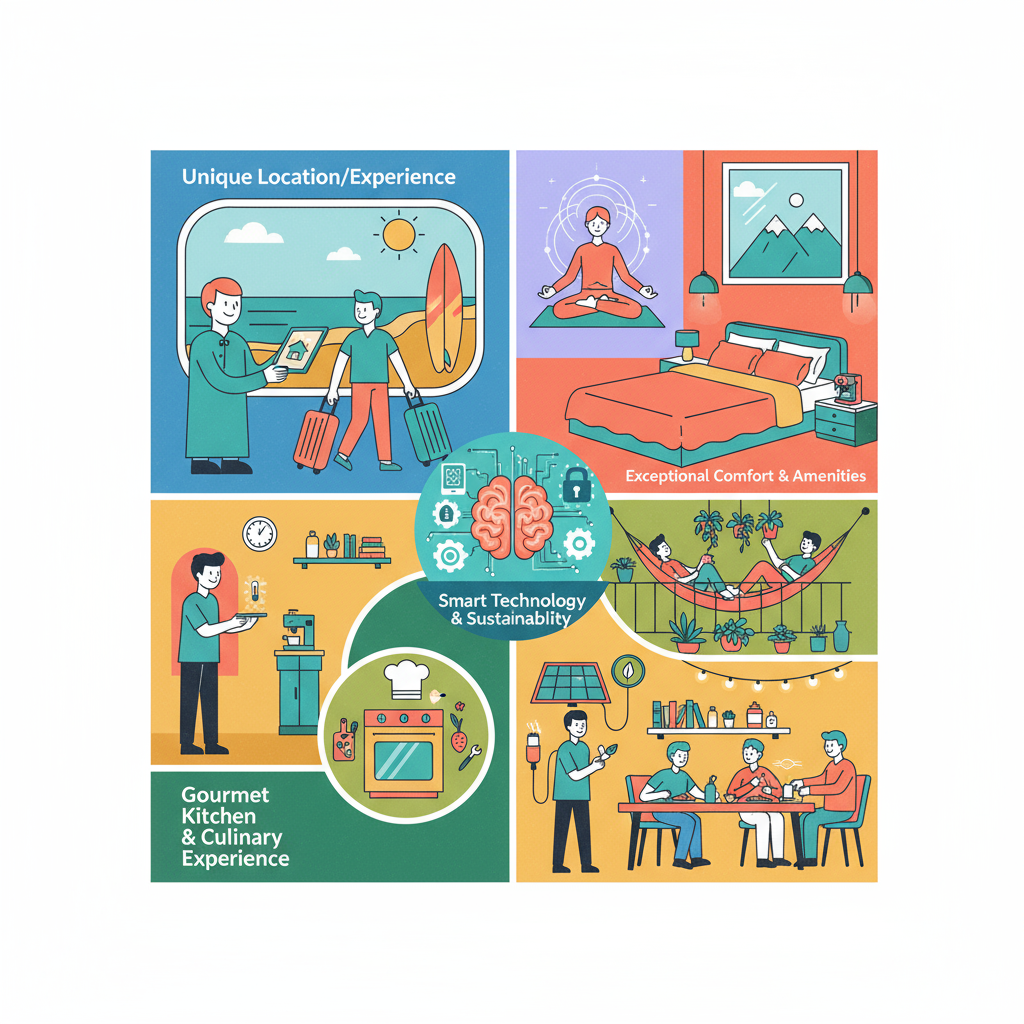





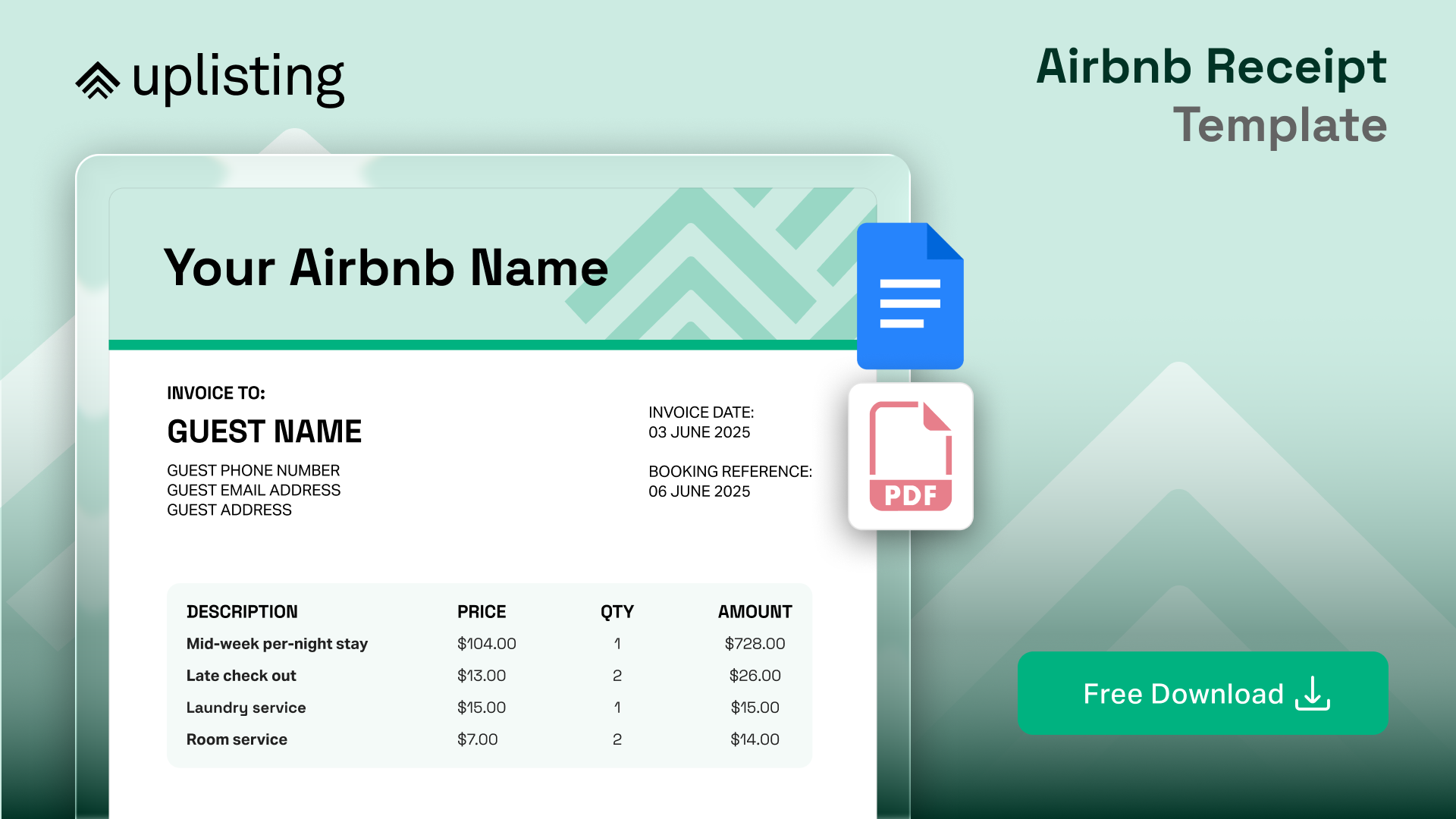

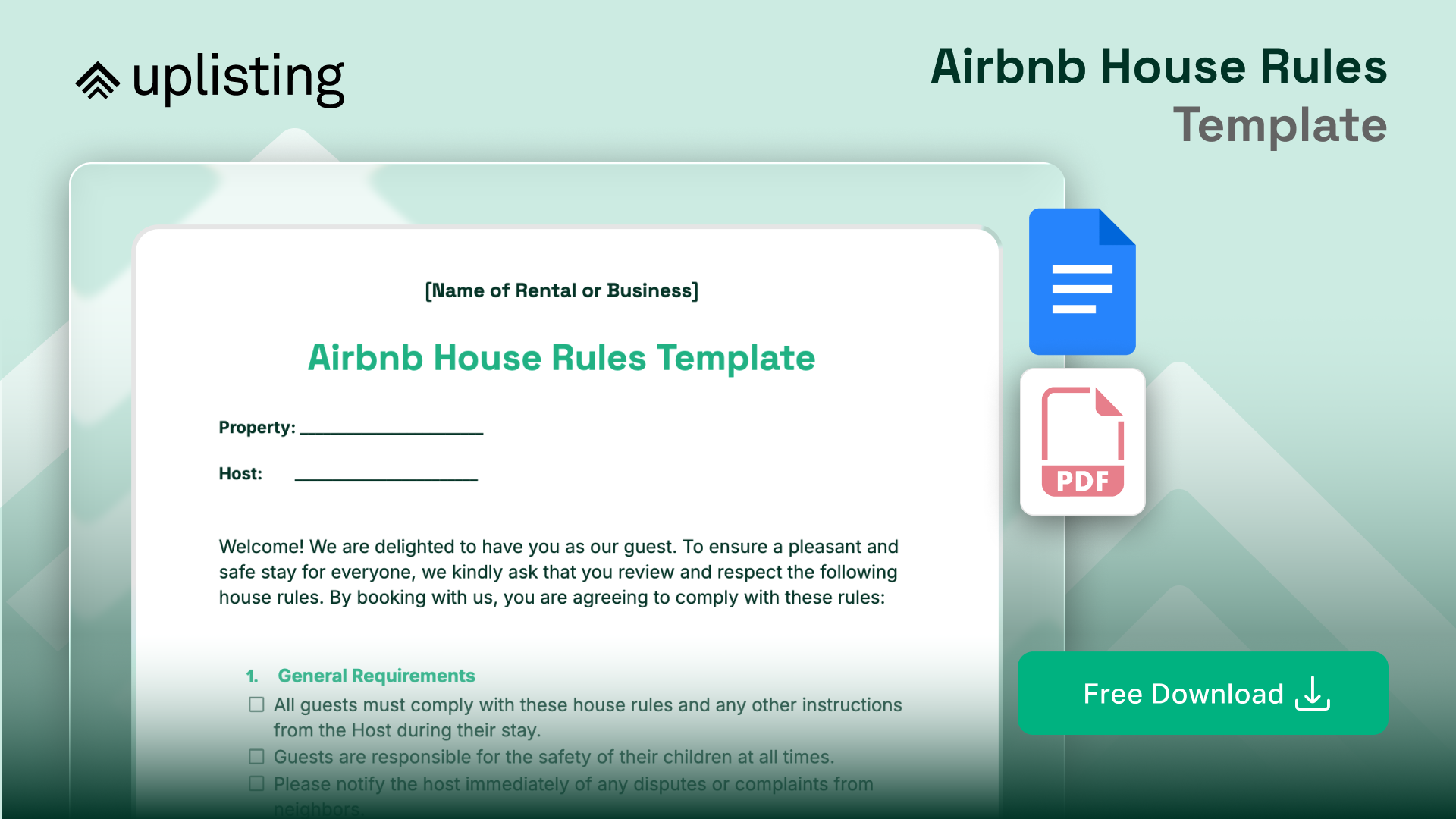

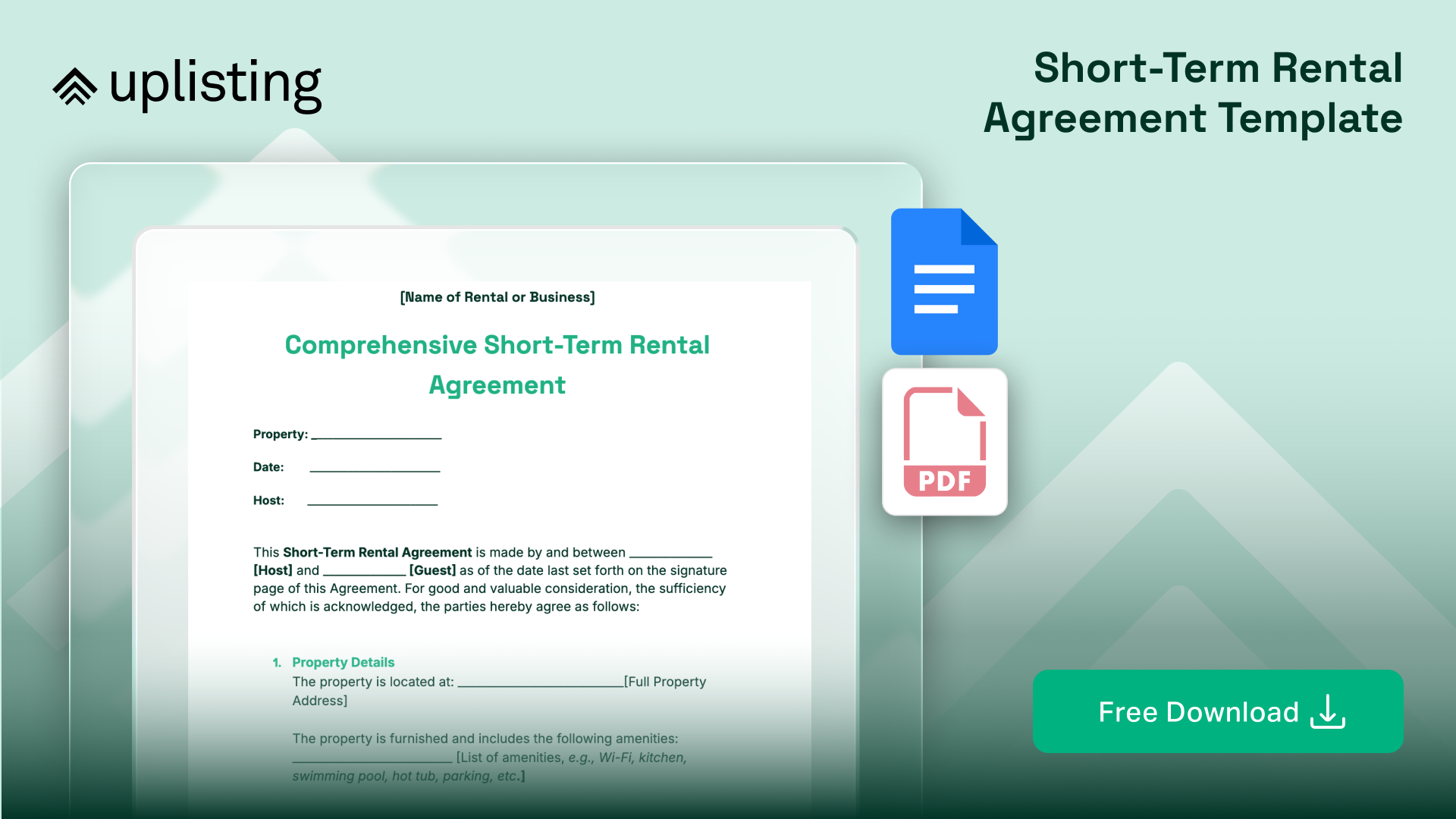


.png)

